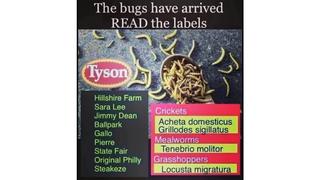
Does an article from a scientific journal in 2015 about a lab-made coronavirus refer to the current outbreak? No, that's not true, and here is some context: While the facts in The Scientist article appear to be accurate, the opinion piece is about a research study that is unrelated to the current coronavirus that originated in Wuhan, China, and has already claimed more than 25 lives.
Users are sharing the article published by The Scientist on November 16, 2015, titled "Lab-Made Coronavirus Triggers Debate" (archived here) to drum up conspiracies or sound alarms. The article opened:
The creation of a chimeric SARS-like virus has scientists discussing the risks of gain-of-function research.
Ralph Baric, an infectious-disease researcher at the University of North Carolina at Chapel Hill, last week (November 9) published a study on his team's efforts to engineer a virus with the surface protein of the SHC014 coronavirus, found in horseshoe bats in China, and the backbone of to one that causes human-like severe acute respiratory syndrome (SARS) in mice. The hybrid virus could infect human airway cells and caused disease in mice, according to the team's results, which were published in Nature Medicine.
Users on social media only saw this:
Lab-Made Coronavirus Triggers Debate
The creation of a chimeric SARS-like virus has scientists discussing the risks of gain-of-function research.
People sharing the article on social media are suggesting the current coronavirus was "lab-made." Here are a couple of examples:
The rabbit hole is deeper than the Media are willing to report: "Lab-Made Coronavirus Triggers Debate". via /r/Health https://t.co/2h1udjdPbw #health
-- B S (@bs_health) January 24, 2020
From 2015
-- Jordan Sather (@Jordan_Sather_) January 23, 2020
Was this new coronavirus strain in China engineered?
Planned outbreaks?https://t.co/4lNUV2bdWy
The 2015 article, labeled a "news & opinion" piece, discussed the debate in the scientific community about so-called "gain-of-function" research. This type of study carries the risk of transmitting "potential pandemic pathogens (PPPs)," according to the National Institutes of Health (NIH). It has raised biosafety and biosecurity red flags.
The article in The Scientist even noted that the agency had placed a moratorium on federal funding of these studies. The NIH stated in 2013:
NIH has funded such studies because they help define the fundamental nature of human-pathogen interactions, enable the assessment of the pandemic potential of emerging infectious agents, and inform public health and preparedness efforts.
At issue, according to the article: a November 9, 2015, study published by an infectious-disease researcher at the University of North Carolina at Chapel Hill. The research had been published in the journal Nature Medicine and demonstrated these findings:
We synthetically re-derived an infectious full-length SHC014 recombinant virus and demonstrate robust viral replication both in vitro and in vivo. Our work suggests a potential risk of SARS-CoV re-emergence from viruses currently circulating in bat populations.
This 2015 article from The Scientist about a gain-of-function study that created a SARS-like virus does not mean this current coronavirus outbreak was engineered then - or was even human-made at all.
The New York Times and The Wall Street Journal report that at least 26 deaths have been attributed to the current outbreak so far. On Chinese social media, people are expressing distrust of the authorities in Wuhan, and there are fears the government mishandled the outbreak.
Lead Stories reached out to The Scientist to add an editor's note or addendum to the story because the article is widely being misappropriated online:
A 2015 article from @TheScientistLLC about a lab-made coronavirus is being widely shared by people who think it is about the current virus.
-- Maarten Schenk (@mschenk) January 24, 2020
We reached out but they said they couldn't add a note/clarification to the story or headline.#coronavirus #factchecking #misinformation pic.twitter.com/3VoGgnjqUn
Bottom line: the research discussed in the 2015 opinion piece from The Scientist does not relate to this current Wuhan coronavirus outbreak.

















